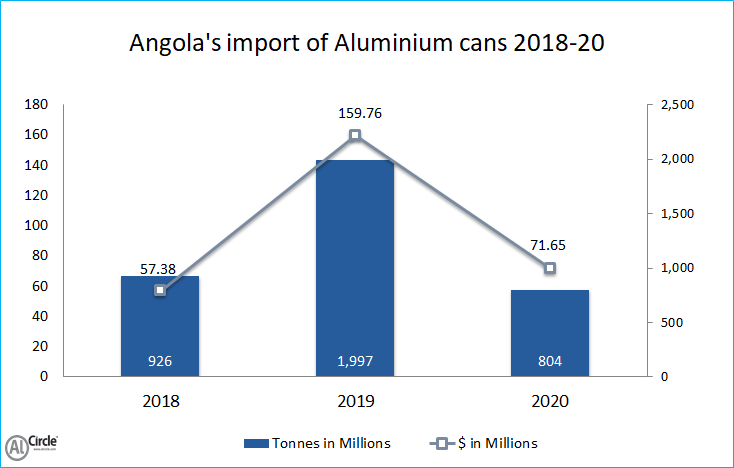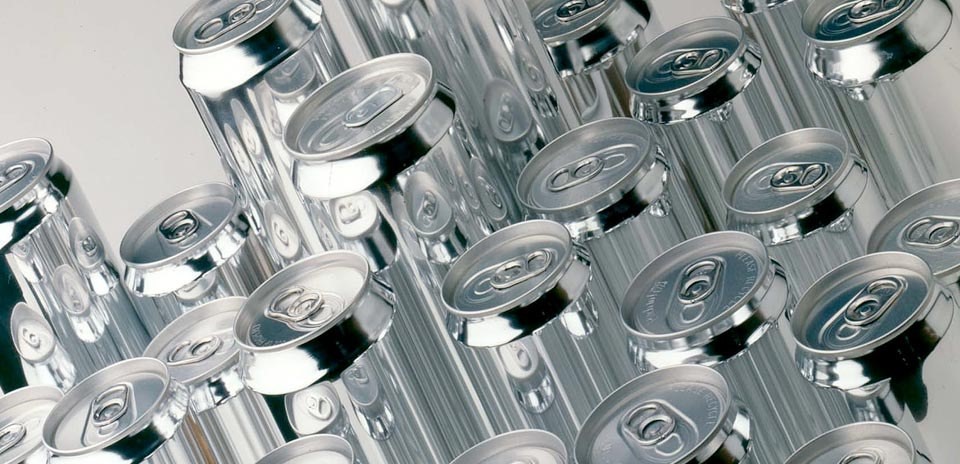

The economy Angola is built on oil, with large reserves of natural gas and oil, making up over one-third of its GDP. The country has experienced one of the fastest-growing economies in the world and becomes one of the richest African countries. However, according to the latest forecast of the Economist Intelligence Unit (EIU), the Angolan economy is expected to contract by 4.1% in 2020, which compares with a previous projection of -2.6%, as a result of the fall in oil prices and the effects of the Covid-19 pandemic.

The Southern African nation’s import of aluminium can during 2018-19 was recorded at 2923 tonnes and the foreign revenue expended for the import during the phase stood at $217.14 million. The aluminium cans import for 2020 is marked to reach at 804 tonnes, which will come up with an expenditure of $71.65 million. When the import volume and expenditure of 2020 get assorted with the existing two years, it resembles 3727 tonnes and $288.79 million respectively.

Angola’s import of aluminium cans in 2018 stood at 926 tonnes and the expenditure remained at $57.38 million, whereas in 2019 the import surged to 115.65%, as the import climbed to 1997 tonnes and revenue expenditure also shot up to $159.76 million.
The aluminium cans import for 2020 has been analysed with downfall by 59.73%, as the import volume to drop and stand at 804 tonnes and expenditure to also decline at $71.65 million.
South Africa stands as the major supplier of aluminium cans to Angola than joins China and other countries are the Netherlands, Portugal, France, Italy, etc.
Responses








